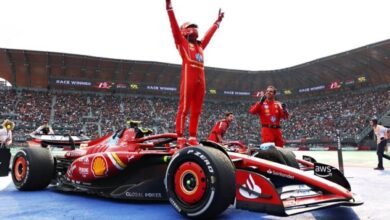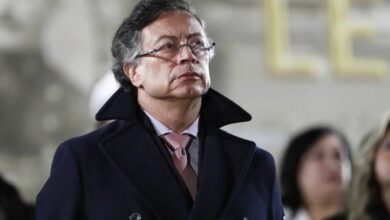The Rose Bowl: the football game with 104 years of history
Listen this article
Ohio State was the most recent winner of this traditional party, which is held on the final days of the year or the first of the following year

A few days ago, Ohio State won the Rose Bowl #104, beating the Washington Huskies 28-23. Today, in LatinAmerican Post, we want to review the best moments of the traditional collegiate football game, in which historically the University of Southern California Trojans is the team with the most victories.
Leer en español: El Rose Bowl: el partido de fútbol americano con 104 años de historia
As indicated by Sports Stadium, even those who are not fond of sports know that the last days of the year and the first days of the following are linked to collegiate football.
It is traditional. The tournament is more than 117 years old if we take as reference the one that was disputed on January 1, 1902, but what many are unaware is that the game alluding to the Rose Bowl after that first edition had 14 years break, until 1916 when it began to be disputed annually and officially. An added value of this event is the traditional parade of roses.
Maybe you're interested in reading: Will there be an NFL team in Las Vegas?
The same newspaper clarifies that its name is due to the Rose Bowl of Pasadena, California, the long-standing scenario in which it is celebrated. The Trojans are the team with the most victories in this match, with 25 in 34 appearances, followed by Michigan (8) and Stanford, Washington and Ohio State with (7).
The world-famous Pasadena stadium was considered by Sports Ilustraded as the number 1 venue for collegiate sports and among the 20 most important of the 20th century, as indicated by Discover Los Angeles. The Rose Bowl has hosted five Super Bowl games, as well as gold medal matches at two Summer Olympics, two FIFA World Cup finals, superstar concerts, and the Rose Bowl game.
The stadium also hosted the CONCACAF Gold Cup finals in 2002 and 2011, and the final of the MLS Cup. From 1996 to 2002, the stadium served as headquarters for the Los Angeles Galaxy, who occasionally played as locals there for a period.
In addition to sporting events, Rose Bowl Stadium has hosted concerts by groups such as Depeche Mode in 1998, Metallica and Guns N 'Roses in 1992, Michael Jackson in the Super Bowl, as well as the Rolling Stones in 1994, and U2 in 2010 It also opens its doors to the general public for guided tours of different prices, concluded Discover Los Angeles.
Ohio triumphs
Marca.com gives some details of the recent victory of Ohio State against Washington. Dwayne Haskins was the great figure of that match with three touchdown passes in the first half to reach 50 in the regular season and lead the Buckeyes to conquer Rose Bowl #104, with a 28-23 slate over the Washington Huskies. The special reason, beyond the title, was coach Urban Meyer’s last game directing the Columbus team.
Even though they were eliminated from the College Football Playoff in the semifinals, Ohio State had been named a Conference Monarch in the Big Ten and that was coupled with the motivation to fire coach Urban Meyer after directing the team since 2012.
The same web portal adds that is the first Rose Bowl victory for Ohio State since 2009, when they beat Oregon 26-17, although at the same time that victory placed them in the second historic bowl-winning place. Meyer, in turn, decided to retire for health reasons and left a mark of 83-9 in seven years in Columbus, getting the national championship in 2014 and three Big Ten titles (2014, 2017 and 2018).
Meanwhile, the game figure, Haskins, would announce his eligibility for the next NFL Draft, as one of the star quarterbacks. In the decisive match against Washington, he threw 4,588 yards and 47 touchdowns during the regular season.
Some important issues
Sports Stadium remembers the first version, that in which Michigan defeated Stanford 49-0 in 1902 and was crowned as the national champions. Since then, the Rosas bowl game has had 19 winners of the Heisman Trophy, has generated 29 national champions, presented to 208 All-American consensuses and honored 113 legends of collegiate football with his induction into the Hall of Fame of the Bowl of the Roses.
Stanford was barely out of the college football playoffs, and Christian McCaffrey was close to winning the Heisman Trophy. McCaffrey and the Cardinal looked impeccable in their beating over Iowa at the Rose Bowl, a 45-16 triumph over the Hawkeyes. It was the 102nd edition of the Rose Bowl, according to El Universal.
Another five editions that he remembers Sports Stadium are the following: In 1926, the Alabama-Washington was decided closed by 20-19 in favor of the first, who were not favorites and gave greater value to the surprise with 20 consecutive points, after losing by 12-0.
We're going to 2005 when Texas beat Michigan 38-37. It was amazing how the 'Wolverines' had a 10-point lead in the third period and lost it thanks to the huge performance of quarterback Vince Young with two touchdowns in the last period.
In 2006, Texas outscored the USC 41-38. It was a match between the undefeated, as both came with a score of 12-0. The Trojans, current champion, led by coach Pete Carroll, had two Heisman Trophy winners in their lineup, quarterback Matt Leinart and running back Reggie Bush, but still could not avoid the surprise defeat.
USC beat Penn State 52-49 in the Rose Bowl in 2017. USC made a great comeback in the fourth period, materialized by Matt Boermeester field goal. In that game, quarterback Sam Darnold set a record with five touchdown passes.
LatinAmerican Post | Onofre Zambrano
Translated from: 'El Rose Bowl: el partido de fútbol americano con 104 años de historia'





